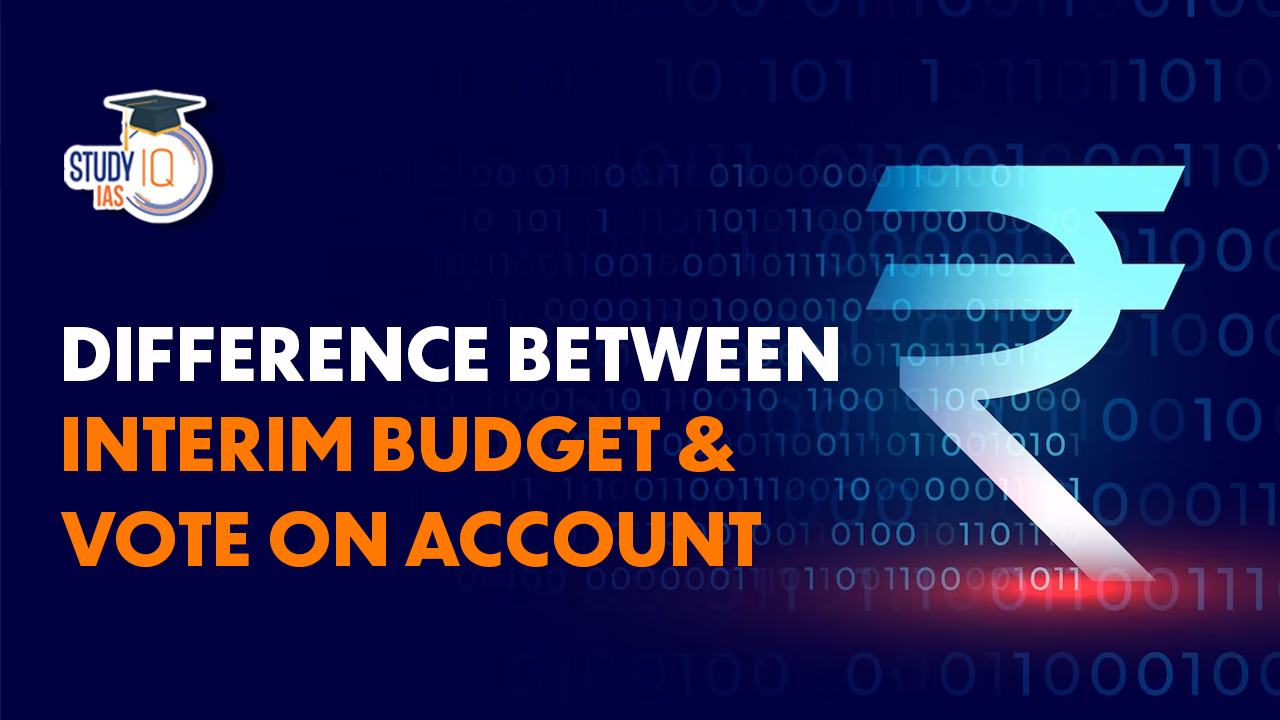Table of Contents
Difference Between Interim Budget and Vote on Account
In the dynamic landscape of fiscal governance, the terms “Interim Budget” and “Vote on Account” stand as critical components that wield substantial influence over a nation’s financial affairs. As financial years draw to a close, governments face the crucial task of presenting budgetary proposals to sustain the country’s economic momentum.
However, understanding the nuanced Difference between Interim Budgets and Votes on Account is paramount for comprehending their distinct roles in managing public finances during transitional periods. In this article, we delve into the fundamental difference between Interim Budgets and Votes on Account of these two financial instruments, shedding light on their significance and implications in shaping a nation’s financial stability amidst the complexities of change.
What is Interim Budget?
In India, an Interim Budget refers to a budget presented by the government in an election year, when the general elections are due or are around the corner, and a new full-fledged budget cannot be presented by the incoming government in the current fiscal year.
An Interim Budget serves as a stop-gap arrangement to keep the government running and meet its expenses until the new government is formed and a regular, full-fledged budget is presented. It is essentially a financial plan for the upcoming months until the new government takes office and presents a complete budget for the entire fiscal year.
What is Vote on Account?
In India, a “Vote on Account” is a special provision that allows the government to obtain the approval of Indian Parliament for essential government expenditures for a limited period, usually a few months, until the regular budget for the full financial year is passed. It is an integral part of the Interim Budget presented in an election year or any other situation where the new full-fledged budget cannot be presented before the start of the financial year.
Key Difference Between Interim Budget and Vote on Account
The terms “Interim Budget” and “Vote on Account” are often used in the context of budgetary matters in India, especially during election years or in situations where a new full-fledged budget cannot be presented before the start of the financial year. While these terms are related and often used together, they refer to different aspects of the budgeting process. Here are the key differences between Interim Budget and Vote on Account:
| Aspect | Vote on Account | Interim Budget |
| Definition | A Vote on Account is a grant made by the Parliament or legislative body that allows the government to withdraw funds from the Consolidated Fund for a limited period, usually four months, to meet essential and urgent expenses. It is an interim arrangement before the full budget is presented. | An Interim Budget is a complete financial statement, much like a regular budget, which presents the government’s revenue and expenditure estimates for the entire financial year, but in a limited capacity, as the full-fledged budget is not presented by an outgoing government or during a transitional period. |
| Timing | A Vote on Account is passed by the Parliament to enable government spending for a specific period, typically at the beginning of a financial year, when the full budget is not yet approved. | An Interim Budget is presented when the government is in transition, usually before the general elections or when a new government is about to take office. It provides for the entire financial year until a new government presents its full budget. |
| Scope | The scope of a Vote on Account is limited to granting funds for essential and urgent government expenses during the specified period. It does not introduce new schemes or make significant changes in tax policies. | The scope of an Interim Budget is broader as it presents estimates for the entire financial year, covering all government revenues and expenditures. It can also introduce new schemes and propose changes in tax policies. |
| Duration | A Vote on Account is usually applicable for a short period, commonly four months, from the beginning of the financial year until the full budget is approved. | An Interim Budget covers the entire financial year until the new government presents its full budget. |
| Authority | The authority to pass a Vote on Account lies with the Parliament or equivalent legislative body, and it is typically requested by the outgoing government or during a transitional period. | The Interim Budget is presented by the incumbent government before the completion of its term, or by a new government that takes office during a transitional period. |
| New Schemes | A Vote on Account does not introduce new government schemes or make significant policy changes. | An Interim Budget can introduce new government schemes and propose changes in tax policies for the full financial year. |
| Long-term Planning | As it covers a short period, a Vote on Account does not facilitate long-term planning and policy decisions. | An Interim Budget allows for long-term planning as it covers the entire financial year until the new government presents its full budget. |
| Role in Government Change | A Vote on Account is used by the outgoing government to fund essential expenses until the new government assumes office and presents its full budget. | An Interim Budget is presented by the outgoing government or a new government to manage the country’s finances until the full budget is presented. |
| Related Constitutional Articles | Article 116 of the Indian Constitution empowers the Parliament to make grants in advance for expenditure in respect of the estimated receipts and expenditure for a part of any financial year. | There are no specific constitutional articles that mention an Interim Budget. The practice of presenting an Interim Budget is based on the government’s financial management during a transitional period. |
Difference Between Interim Budget and Vote on Account for UPSC Exam
Understanding the difference between Vote on Account and Interim Budget is essential for UPSC aspirants as it aligns with the UPSC Syllabus under Indian Polity and Governance. These financial instruments play a crucial role in managing public finances during transitional periods or government changes. Knowing the nuances of both concepts is vital for excelling in UPSC exam. Aspirants can accomplish this by joining UPSC Online Coaching and UPSC Mock Test, which will enable aspirants to grasp the complexities of fiscal governance and demonstrate a comprehensive understanding of financial management during various stages of governance.


 Mechanisms to Combat Judicial Corruption...
Mechanisms to Combat Judicial Corruption...
 Registrar General and Census Commissione...
Registrar General and Census Commissione...
 Ambedkar Jayanti 2025: Biography, Legacy...
Ambedkar Jayanti 2025: Biography, Legacy...





















